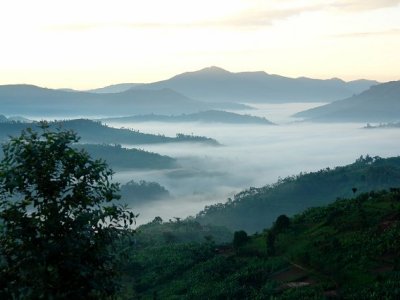
THE GOD OF RWANDA
How did belief in God change for those caught up in the Rwandan genocide?
‘Since there was Auschwitz, God cannot exist.’
The laconic words of Primo Levi to his compatriot Fernando Cameron succinctly pose the dreadful question inherent to such evil. If God is all powerful and all loving, why did the Holocaust happen without remission for years? Jewish and Christian thinkers have grappled with this issue of theodicy ever since. It was hardly a new question – the Book of Psalms posed it many times over – but the industrial scale of the horror gave a new shape to the shadows. In June 2009 I attended a conference in Jerusalem which addressed its unsparing wickedness.
In preparation for the conference I chose to read The Strategy of Antelopes by the French journalist Jean Hatzfeld (Farrar, Straus and Giroux, 2009), the third in a trilogy of studies on the Rwandan genocide, where he spends time alternately giving voice to the victims and perpetrators of the crimes on how they are having to adjust to living side by side once again. This African genocide differed from the Holocaust in a number of ways (scale, length and means each offering practical differences). It was at least nominally a crime of Christian upon Christian. However hard you may swallow at reading that observation, many of the victims and murderers now worship in the same churches. Africans believe in God by and large, so what did they do with God in the marshes as they wielded or waited for the machetes? Hatzfeld’s book devotes a chapter to this question, and he lets Rwandans do the talking. Here are some of the victim’s observations:
Up on Kayumba we called to God from morning till night, and I finally tired of seeing nothing arrive but machetes…during the killings we simply didn’t think anymore about believing.
The more corpses we saw…the less we believed in God, especially since we’d begged so much for His helping hand.
First I believed Satan was stronger than God, the direct opposite of what I had been taught. Afterward…I had nothing left to believe except that I was going to be cut.
These sobering reflections are countered by others:
God is someone we can’t ignore…That Italian philosopher [Primo Levi, above] did have the right to suggest his non-existence, but he cannot get a hearing in Africa.
I still believe in him but…I don’t count on him in the way I used to.
Many of the victims resorted to a kind of deism – a re-shaped belief in an impassive God who does not care to intervene. Their understanding of God was permanently altered and they prayed much less, if at all. Not having the atheistic traditions of Europe, they were less inclined to sacrifice his existence than his character.
By contrast, the killers spoke:
During the killings, I chose not to pray to God. We had removed the Tutsis from God’s work…I sensed that it was not appropriate to involve Him in that.
We had to forget our catechism class. We had first of all to obey our leaders – and God only afterward…to make confession and penance. When the job was done.
Many Tutsi believers feel the Church has been co-opted into government efforts to forge reconciliation at all costs, allowing sham expressions of faith among the killers which do not amount to repentance because no remorse has been expressed to the victims.
After all they endured, many of the victims had their belief in God remoulded by the experience into shapes which were of little daily use to them. In the parable of the sheep and the goats (Matthew 25) Jesus taught us that we encounter him in the actions of other people. If the other person is wielding a machete, is it any wonder God seemed to vanish for them? Such is the power for good and evil in every human being.
POPULAR ARTICLES

Obama's Covert Wars
The use of drones is going to change warfare out of all recognition in the next decades.

Through A Glass Starkly
Images of traumatic incidents caught on mobile phone can be put to remarkable effect.

What Are British Values?
Is there a British identity and if so, what has shaped the values and institutions that form it?


